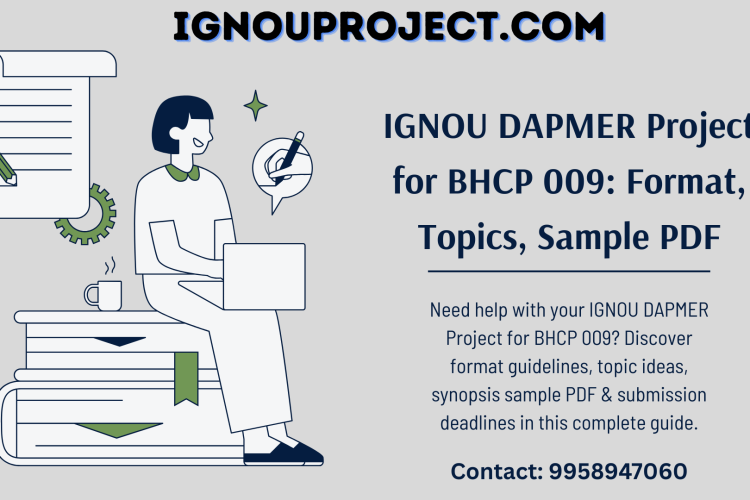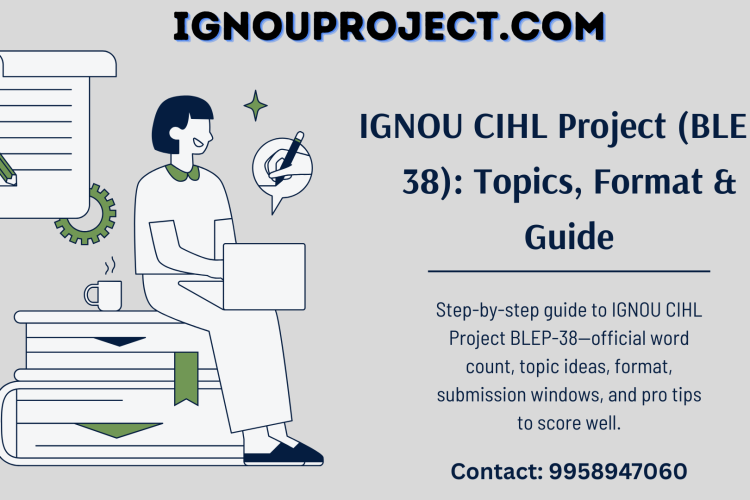
The IGNOU MBA Project Plagiarism Check is a mandated process that ensures a student’s project report is unique and free of plagiarized content. IGNOU (Indira Gandhi National Open University) mandates all MBA students to follow ethical academic standards by submitting projects based on their own analysis, research, and comprehension. To enforce this, IGNOU requires a plagiarism check, typically using plagiarism detection software such as Turnitin or equivalent methods. These tools check the project document for instances of duplication or uncredited information from published sources, web publications, and databases.
For the project to be recognized, IGNOU often demands that the similarity index—a measure of how much content is identical to sources in the software’s database—fall below a predetermined threshold (usually about 20-30%). If the project surpasses this threshold, students must alter their content to minimize the similarity score before resubmitting. This plagiarism check contributes to the academic integrity of the IGNOU MBA program by encouraging students to acquire authentic research abilities and create unique content. Failure to comply may result in project rejection or sanctions, emphasizing the significance of conducting unique research.
Why is the IGNOU MBA Project Plagiarism Check important for students?
The IGNOU MBA Project Plagiarism Check is essential for students as it ensures the originality and academic integrity of their research work. This check promotes the development of genuine research skills by requiring students to create their own analysis, findings, and conclusions rather than copying existing content. By preventing plagiarism, it helps maintain the credibility of the degree program, ensuring that graduates meet high academic standards.
The plagiarism check educates students about the importance of citing sources, thus reducing the chances of accidental plagiarism. A clean plagiarism report can also be advantageous for students’ future academic or professional endeavors, reflecting that they can produce unique, thoughtful work. Ultimately, the IGNOU MBA Project Plagiarism Check protects both the student’s and the institution’s reputations by verifying that the submitted work is an authentic contribution to their field.
What documents are required to complete the IGNOU MBA Project Plagiarism Check?
To complete the MBA Project Plagiarism Check, students typically need to submit the following documents:
- Final Project Report: The full project report in the required format (usually in PDF or Word format). This should include all chapters, references, and appendices.
- Plagiarism Report Form: Some IGNOU study centers may require students to fill out a specific form that confirms the project has undergone a plagiarism check.
- Declaration of Originality: This is a signed statement by the student declaring that the submitted work is their original work and has not been plagiarized.
- Project Proposal Approval (if applicable): Some centers may request a copy of the original project proposal approved by the university to verify alignment with the final report.
- Student ID Proof: This may include the IGNOU student ID card or enrollment confirmation as part of the submission process.
Which plagiarism detection software is used by IGNOU for the MBA project plagiarism check?
IGNOU primarily uses Turnitin for the MBA project plagiarism check, which is one of the most widely recognized plagiarism detection software tools. Turnitin scans submitted documents against a vast database of academic papers, publications, websites, and other sources to identify similarities and uncredited material. This tool generates a similarity report indicating the percentage of content that matches existing sources, helping students and evaluators ensure that the work meets IGNOU’s originality standards.
What steps should students take if their IGNOU MBA project plagiarism check shows a high similarity score?
If an IGNOU MBA project plagiarism check shows a high similarity score, students should take the following steps to reduce it:
- Review the Plagiarism Report: Go through the similarity report carefully to identify which sections of the project have been flagged. This helps pinpoint specific areas where content overlaps with existing sources.
- Rewrite Flagged Sections: Paraphrase or rewrite the content in your own words. Avoid using direct quotes unless absolutely necessary, and ensure that any borrowed ideas are expressed uniquely.
- Properly Cite Sources: If certain parts of the project include ideas, data, or theories from other sources, ensure they are properly cited. Adding accurate citations and references can help reduce the similarity score and clarify the distinction between your work and existing material.
- Remove Excessive Quotations: Limit direct quotes, as too many can increase the similarity score. Summarize or paraphrase instead, focusing on creating an original interpretation of the material.
- Seek Feedback from a Mentor: Consulting with a project guide or mentor can provide guidance on reducing the similarity score effectively. They can suggest rephrasing techniques and ensure the report aligns with IGNOU’s originality standards.
- Re-run the Plagiarism Check: After revising the content, run the report through plagiarism detection software again to confirm the similarity score is now within acceptable limits before resubmitting.
Are there any specific guidelines provided for the IGNOU MBA Project Plagiarism Check process?
Yes, IGNOU provides specific guidelines for the MBA Project Plagiarism Check process to help students maintain academic integrity and ensure the originality of their work. Here are some key guidelines:
Acceptable Similarity Percentage:
IGNOU generally allows a similarity score below 20-30%, but specific guidelines on acceptable thresholds can vary by study center or program. Projects exceeding this limit may need revisions.
Proper Citation and Referencing:
Students are expected to cite all sources used in their project accurately. IGNOU emphasizes using proper citation styles (usually APA or MLA) for ideas, data, or direct quotes borrowed from other works.
Limiting Direct Quotes:
To keep the similarity score low, IGNOU advises minimizing direct quotations. Students should paraphrase or summarize content rather than relying on extensive quoting.
Mandatory Declaration of Originality:
Students must include a signed declaration of originality, confirming that the project is their own work. This document is usually submitted along with the project report.
Submission of the Plagiarism Report:
Some study centers require students to submit the plagiarism report generated from the official plagiarism detection software (e.g., Turnitin) as part of the project submission package.
What types of content are most commonly flagged in the IGNOU MBA Project Plagiarism Check?
In the MBA Project Plagiarism Check, certain types of content are more commonly flagged due to their resemblance to existing sources. These include:
- Literature Review Sections:
Literature reviews often contain information from existing research, studies, and theories, which can lead to higher similarity scores. If not properly paraphrased or cited, these sections are flagged frequently.
- Commonly Used Terminology and Phrases:
Technical terms, business jargon, and industry-specific phrases may match existing material, as these are widely used in academic and professional literature.
- Data, Statistics, and Case Studies:
If students include external data, case studies, or statistical information without clear citations, these are likely to be flagged for similarity.
- Methodology Descriptions:
Methodology sections can often look similar to other research papers, especially if students use standard research techniques and language commonly found in academic writing.
- Direct Quotes:
Excessive use of direct quotes, even if cited, can increase the similarity score, as these appear identical to source materials in the plagiarism check.
- Commonly Referenced Theories or Models:
Commonly referenced models and frameworks, like Porter’s Five Forces or SWOT analysis, often appear in many works and are flagged unless effectively paraphrased and cited.
Do students receive a report of their IGNOU MBA Project Plagiarism Check results?
Yes, students typically receive a report of their IGNOU MBA Project Plagiarism Check results. This report, generated by plagiarism detection software (such as Turnitin), provides detailed information on the similarity score and highlights specific sections of the project that match content from other sources.
The plagiarism report usually includes:
- Overall Similarity Percentage: This score reflects the total percentage of content that matches existing sources, helping students understand how much of their work needs modification.
- Highlighted Matches: The report marks specific phrases, sentences, or paragraphs that resemble content from other sources, indicating the original source if available.
- Source Breakdown: A list of sources or publications where similar content has been found, helping students identify and properly cite or rephrase the flagged sections.
Read also: IGNOU MBA Project Guidelines

